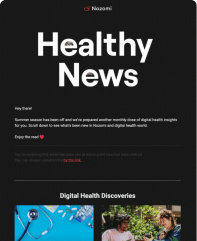When speaking with founders of various companies, we’ve noticed that AI continues to be a major focus for health startups and organizations. Discussions often revolve around AI companions, ways AI reduces the costs of app development and logistics, and much more.
Today, we’d like to dive deeper into these topics. Drawing on insights from experts and our own experience creating multiple AI healthcare products, we’ve identified the key trends that, in our opinion, will most significantly shape 2025.
By the way, we’ve also included a list of 10 AI features from popular brands already leveraging these trends to boost engagement, retention, and other key metrics—check it out below!
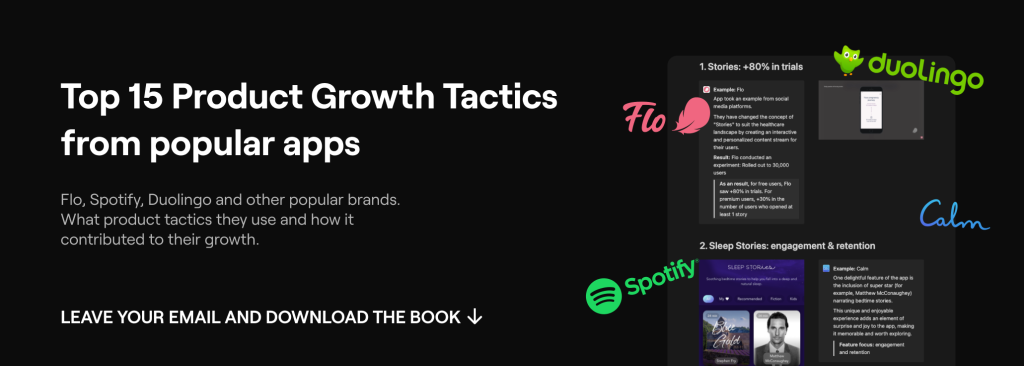
Top 10 AI Features that use popular Digital Health Brands for Growth
1. AI can analyze Emotions
AI can classify emotions: data collection is essential for decision-making. However, making decisions becomes challenging if the data is not properly organized.
A well-trained AI system can effectively distribute and classify data, allowing for personalized content delivery to specific user segments based on their behavior patterns and results.
Artificial intelligence in health apps can even segment users based on their emotions.
For example, the well-known app Vibe by LUCID uses AI to create personalized music for people with different problems (even with dementia).
But how does it determine what to provide to each user? LUCID utilizes biometric and self-assessment data to classify emotional states.
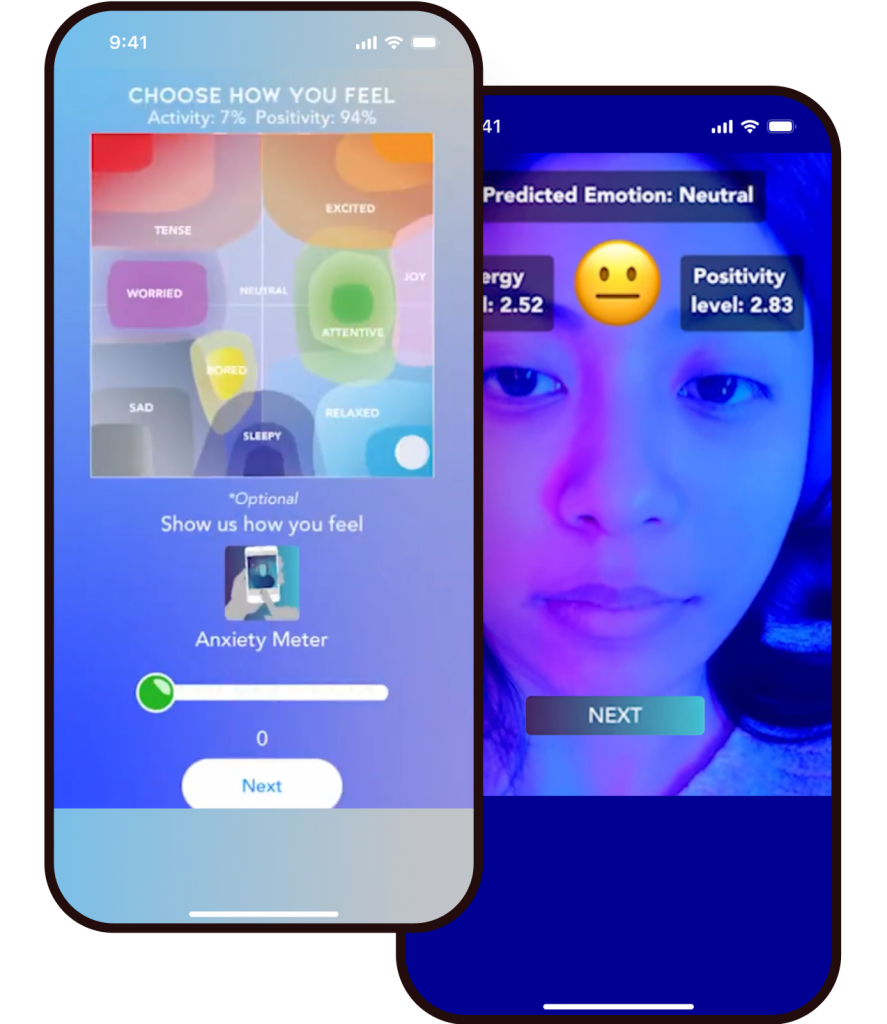
Image credit: Vibe by LUCID
2. Era of AI Companions
AI can act as a chatbot for preliminary diagnosis, appointment scheduling, and answering frequently asked questions.
For example, Anil Gehi, MD, an associate professor of medicine and cardiologist at the University of North Carolina at Chapel Hill, conducted a test on GPT-4, yielding impressive results.
The professor provided the chatbot for a medical app with a patient’s recent symptoms and medical records, deliberately using advanced medical terminology to challenge it.
GPT-4 prescribed the same treatment course that he and other medical professionals would have recommended. When the process was repeated with other patients, the results remained accurate.
So they work like virtual health assistants.
We even also make such apps with AI companions and can share advice.
What do we need to consider here? Firstly, AI must establish emotional contact. The best way to do this is to introduce itself and provide a clear call to action (CTA).
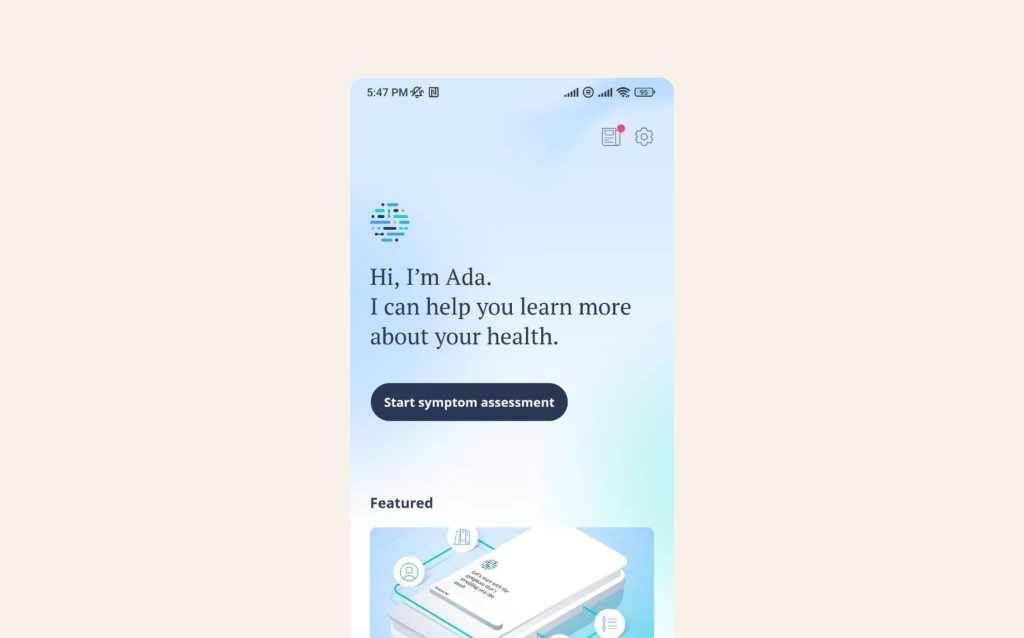
Image credit: Ada
Secondly, limit the choices. Yes, many existential psychologists say that people don’t like to choose, and a large number will definitely increase cognitive load and lead to an increase in User Churn.
Therefore, display on the interface the minimum number of most relevant options. In the example below, we did this regarding symptoms and the dialogue with the AI companion:
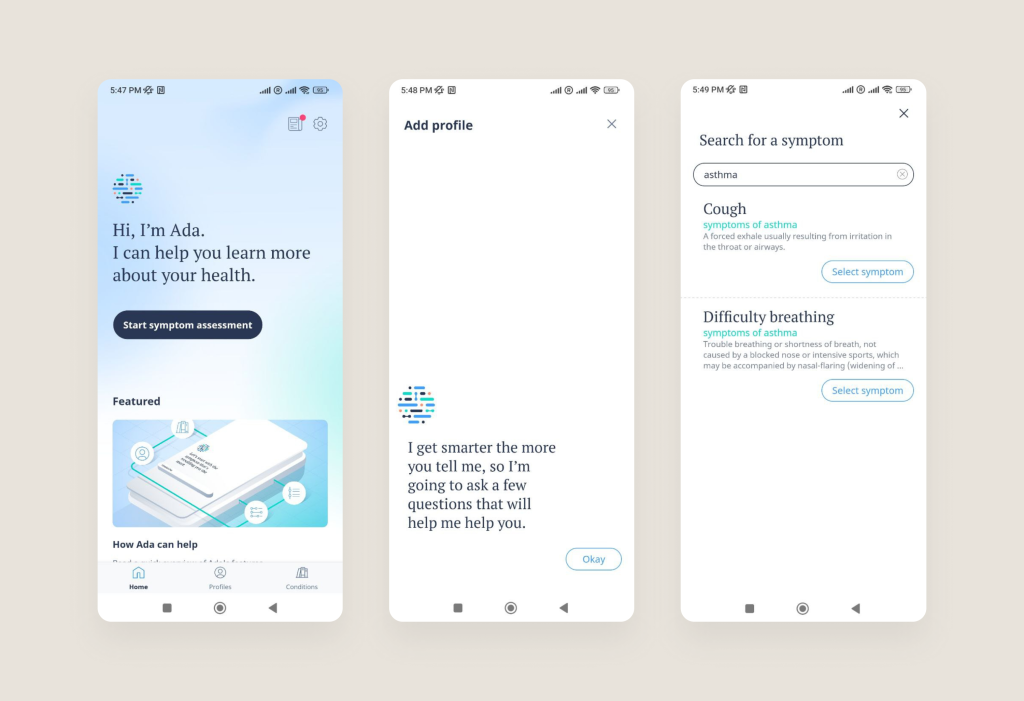
Image credit: Ada
3. Generative AI in Medical Content Creation
Generative AI tools, such as ChatGPT, are being deployed to create patient education content, automate administrative tasks, and even assist in research by generating literature reviews or hypotheses. Compliance with regulations like the EU AI Act is critical in this domain.
Moreover, AI can even be used to generate images, significantly reducing design time. For example, we implemented a similar technology in Nuna:
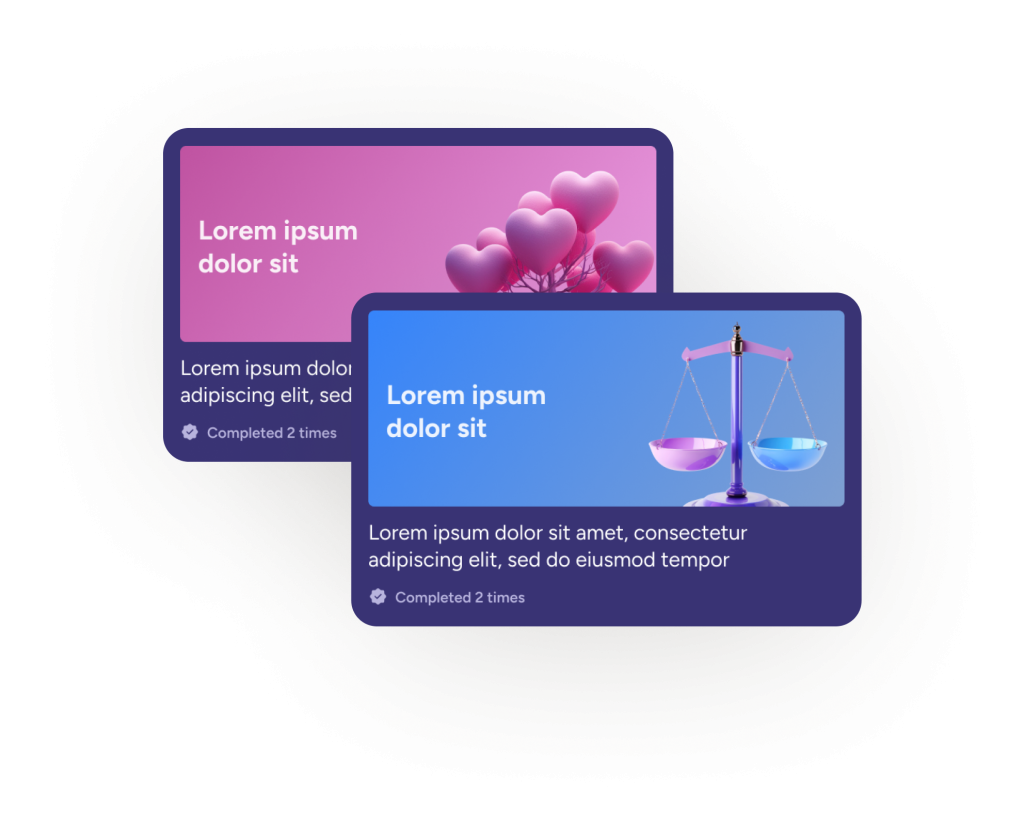
4. Social Fitness
Social fitness platforms like Strava, Fitbit, and WHOOP are leading the way in combining AI with gamification to increase user motivation and retention.
These platforms use AI to analyze workout data, provide personalized fitness insights, and recommend training plans tailored to individual goals. Strava’s group challenges, leaderboards, and segment competitions foster a sense of community and accountability, motivating users to stay active.
Strava’s “Group Challenges” feature leverages AI to personalize recommendations for users to join activities suited to their fitness level. For example, AI analyzes a user’s past running or cycling activity and recommends challenges based on their pace or distance trends.
These insights keep users engaged by connecting them with peers of similar capabilities while gamifying their fitness progress.
5. Remote Patient Monitoring
Example: Binah.ai is a sophisticated AI-driven health data platform that allows users to monitor a broad spectrum of biomarkers using just a smartphone, tablet, or laptop.
This platform offers video-based solutions for health and wellness monitoring, capturing medical-grade vital signs in real-time.
Available as the Binah SDK (Software Development Kit), this technology can be seamlessly integrated into any application or digital workflow.
It tracks critical biomarkers such as blood pressure, heart rate, heart rate variability (including multiple parameters and RRI raw data), oxygen saturation, breathing rate, sympathetic stress, parasympathetic activity, and the pulse-respiration quotient (PRQ).
6. Focus on Health Equity
AI is becoming a critical tool in addressing healthcare disparities by improving access to care and tailoring solutions for underserved populations. By leveraging data on social determinants of health (SDOH), AI helps create interventions that target marginalized groups effectively.
Concrete Example:
1. Babylon Health uses AI-driven chatbots to provide affordable telemedicine services in regions with limited access to healthcare professionals. For example, in Rwanda, Babylon Health has deployed services enabling patients to consult a virtual doctor for basic medical advice, reducing dependency on in-person visits.
2. Cityblock Health employs AI to prioritize care for low-income patients by identifying high-risk individuals through predictive analytics. This approach improves outreach to patients who are less likely to seek preventive care, enhancing outcomes and reducing emergency visits.
3. Suki AI, a voice-enabled assistant for doctors, is helping reduce documentation burdens in safety-net hospitals, where physicians often face resource constraints. By streamlining administrative tasks, doctors can focus more on delivering care to underserved communities.
Together, these innovations are fostering greater inclusivity and addressing the healthcare needs of populations often left behind in the digital health revolution.
7. Telemedicine Support & human behavior
Chat GPT for doctors: GPT can assist healthcare providers by facilitating communication with patients before or during telemedicine consultations.
Here the progress goes further, involving AI that not only provides basic advice and identifies a disease by symptoms but also emulates human behavior.
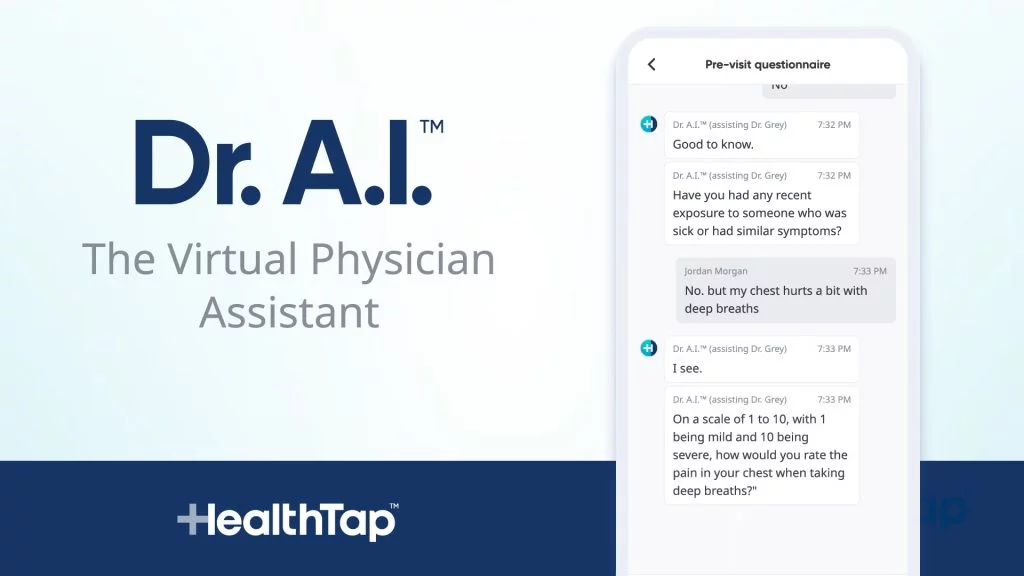
Image credit: HealthTap
For example, Dr.A.I.™ from HealthTap efficiently collects extensive patient data through a conversational interface that mimics human interaction. It then condenses and presents this information to HealthTap doctors in a clear, organized manner just before the online consultation.
With patient intake interviews enhanced by GPT-4, HealthTap doctors have the opportunity to allocate more time towards delivering tailored care.
8. Mental Health Support
Ever wished for a friend who’s there for you 24/7, offering a listening ear and thoughtful advice?
The chatbot can help you with the questions or even guide someone through progressive muscle relaxation exercises to address their symptoms and alleviate stress and tension.
For example, Woebot could offer a comprehensive suite of cognitive-behavioral therapy exercises, including techniques like thought challenging and exposure therapy, to aid users in managing their symptoms over time.
It could also provide personalized feedback and coaching to enable users to apply these techniques in their daily lives.

We hope this article was useful for you!
Who we are? We are a digital health product studio, who transforms healthcare digital experiences and sets new standards for delivering digital healthcare in a way that positively impacts people’s lives.
We assist healthcare startups in designing and developing digital products, while also helping healthcare organizations undergo transformative changes.
If you are interested about our experience check our portfolio with case studies by the link or you can read more about us here.
And write to us now on m@nozomihealth.com and we will discuss how we can help ensure that your product brings real benefits





